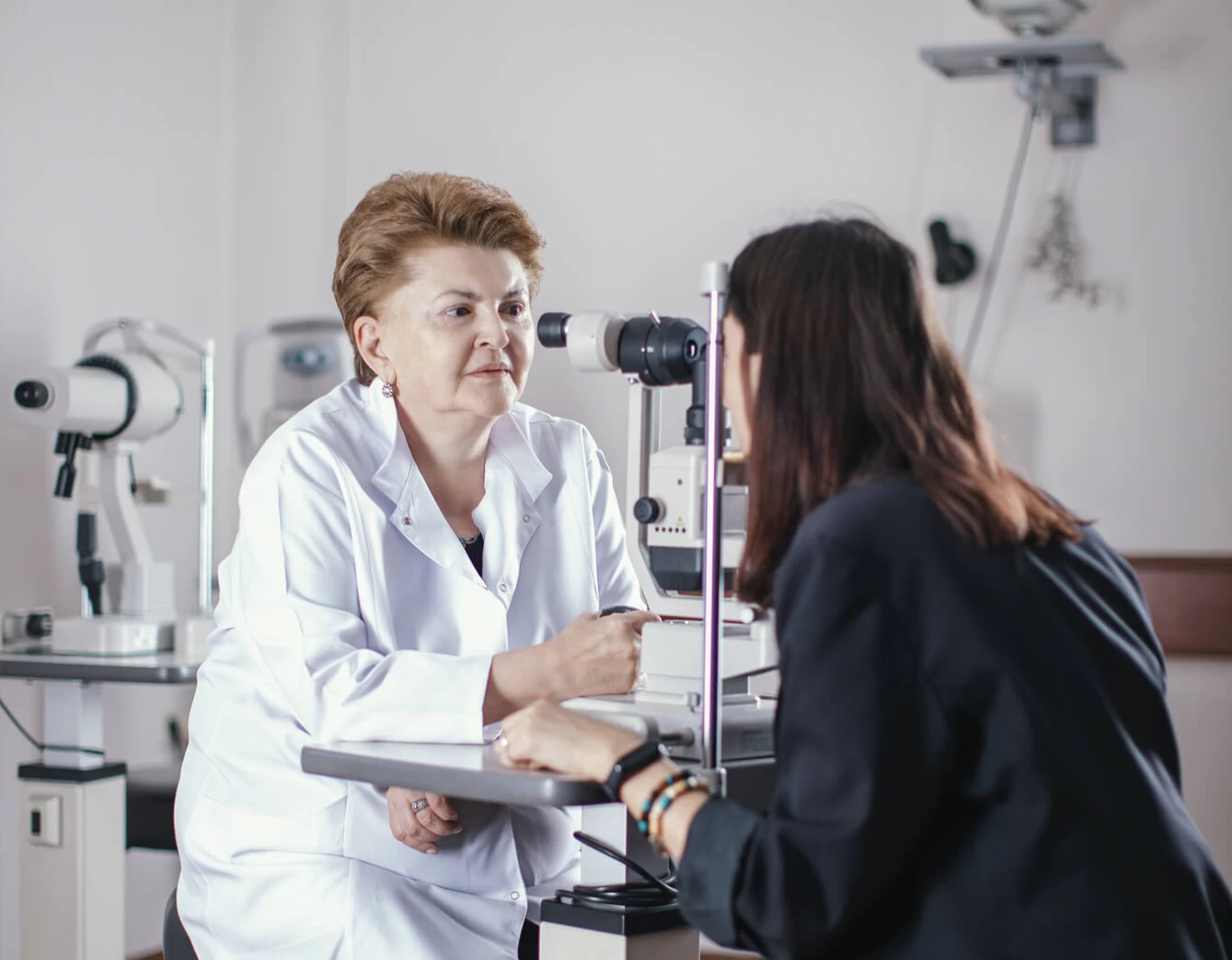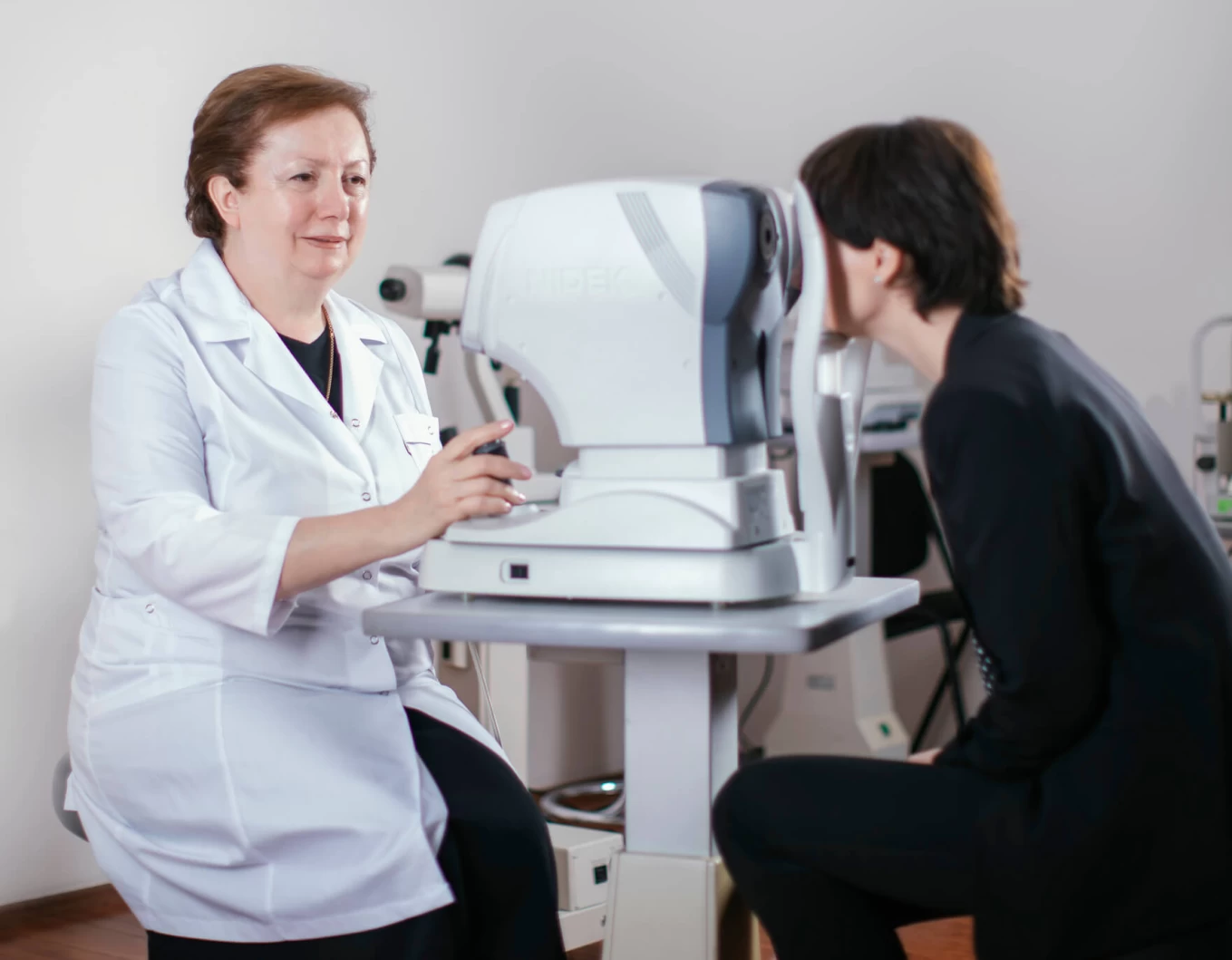Department of Ophthalmology
Head of the Department - Tinatin Shengelaia
The Department of Ophthalmology is equipped with Topcon's biomicroscope, ophthalmometer, non-contact computer tonometer, computer dioptrimeter, exophthalmometer, projector, Grand Seiko's autorefractometer, a set of eyeglass lenses, TOMEY's computer perimeter, ophthalmoscopes, and NIDEK's auto refractor/keratometer.
Ophthalmology is one of the most important branches of medicine, as it studies various complications related to the eyes and the visual perception system, makes diagnoses, and contributes to the development of treatment strategies. It should be noted that ophthalmology is a particularly complex and dynamic field. This is due to the wide range of procedures it encompasses. Ophthalmology involves correcting minor refractive defects as well as performing complex surgical operations. Ultimately, it becomes a medical discipline that not only aims to restore and improve vision but also has a significant impact on the quality of life and lifestyle of many individuals.
The department performs:
- Vision testing and correction of refractive anomalies based on refractometer data. Myopia correction using contact lenses from Bausch Lomb, Cooper Vision, and Ocular Sciences.
- Intraocular pressure measurement using a computer tonometer.
- Biomicroscopy, ophthalmoscopy, exophthalmometry, and assessment of tear production capacity using the Schirmer test.
- Visual field examination using a computer perimeter for various pathologies.
- Detection and treatment of ophthalmological pathologies in cases of neurological, endocrine, cardiovascular, and oncological diseases.
Ophthalmology is one of the most important branches of medicine, as it studies various complications related to the eyes and the visual perception system, makes diagnoses, and contributes to the development of treatment strategies. It should be noted that ophthalmology is a particularly complex and dynamic field. This is due to the wide range of procedures it encompasses. Ophthalmology involves correcting minor refractive defects as well as performing complex surgical operations. Ultimately, it becomes a medical discipline that not only aims to restore and improve vision but also has a significant impact on the quality of life and lifestyle of many individuals.
What Does Ophthalmology Encompass?
Ophthalmology encompasses a wide range of diseases that significantly affect the eyes and related systems. For example, this can include refractive anomalies such as myopia, hyperopia, astigmatism, presbyopia, and more. To correct these complications, ophthalmologists develop an individualized treatment strategy and use supportive tools like eyeglasses and contact lenses. In some cases, surgical intervention may be necessary.
You should consult an ophthalmologist if you have problems related to cataracts. This is a condition characterized by clouding of the eye, which makes it difficult for patients to distinguish colors, read, or perform other activities.
Additionally, ophthalmology is responsible for managing conditions like glaucoma, macular degeneration, retinal detachment, and more. It is important to note that the health of the eye and the quality of vision can be affected by other diseases as well. For instance, diabetes over time significantly impacts the retina, which is potentially linked to vision loss. To prevent such problems, comprehensive treatment is necessary, as it is crucial to manage diabetes properly while ensuring the eye is consistently monitored by a specialist.
This branch of medicine also includes eye infections, inflammations, and various types of allergies. These complications are usually associated with significant discomfort, such as itching and tearing. Therefore, it is important to visit a specialist in a timely manner to alleviate symptoms and prevent potential complications.



